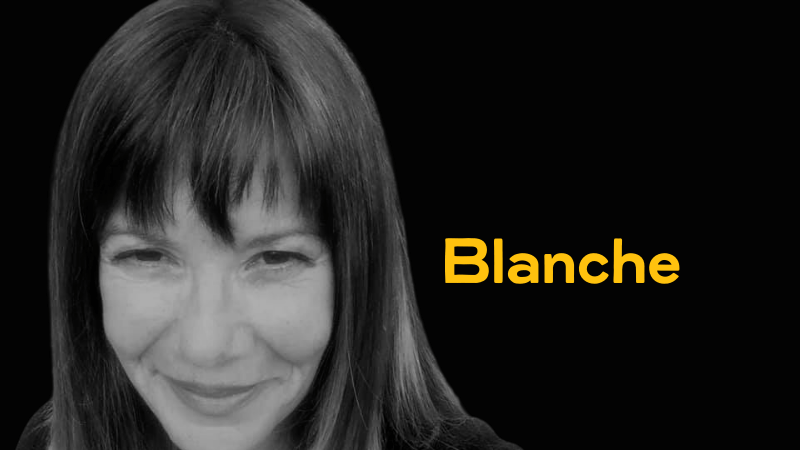Equality Minister Owen Bonnici, who has been condemned by the courts for breaching the human rights of his own country’s citizens, had the brass neck to write a sanctimonious opinion piece, carried by The Times of Malta, decrying the “defiance of human rights” in Hungary’s anti-LGBTIQ laws.
Of course, he’s right that Hungary’s move is an appalling breach of human rights and should be condemned and resisted with whatever arsenal the EU has available.
But how dare he – a government minister who has been convicted of that exact same crime, breaching the human rights of activists protesting the brutal assassination of journalist Daphne Caruana Galizia, a murder in which his own colleagues are implicated – presume to lecture the rest of us on how dreadful a crime it is to breach citizens’ human rights?
Bonnici’s shameless cheek isn’t in any way unusual in this island of duplicitous hypocrites. And in his Labour government, this unblushing expression of brazen double standards has become par for the course. Nearly every morning, anyone on Facebook unfortunate enough to have once clicked “follow” on Evarist Bartolo’s page, will be very familiar with the concept.
His nausea-inducing flights of fancy, published at the insomniac hours of 3am or 4am, would have us believe that he’s an honest, unblemished soul completely detached and unconnected in any way with the hideous scandal of his colleagues’ corruption and criminality.
“Maltese people must unite to fight against corruption and criminality, which threatens the whole country,” he wrote piously in March this year, just after the arrest of accused financial criminal and former OPM chief of staff Keith Schembri.
And yet, we all know perfectly well that when he was in the privileged position of being able to do something about the rampant corruption and criminality of his colleagues, he did nothing. Not only did he do nothing, but he acted to keep them in power, through his deplorable, repeated, votes of confidence in people like disgraced former prime minister Joseph Muscat and disgraced former minister Konrad Mizzi.
His cowardice and hypocrisy are what people will remember him for, no matter how many insincere, rambling essays he writes for his fans to fawn over. And they’ll also remember that when this vapid proselytizing invertebrate was faced with having to deal with corruption allegations involving his own canvasser, instead of reporting the malfeasance, he attempted to cover it up.
Hypocrisy, falsity, double standards… politicians, officials, pundits, party supporters and private individuals nowadays seem to believe that making sanctimonious declarations about ethics, values and principles will fool observers into ignoring their actual behaviour.
This phenomenon, employed ad nauseum by the phoney plaster saints Maltese politics is cursed with, whose private affairs are proven to be in direct opposition to their public projections, has become so ubiquitous that you’d be hard-pressed to find a single politician who doesn’t have one set of values for the general public and an entirely different one for him/herself.
And yet, for some reason, the Maltese population seem to accept this dishonesty without quibble. Take the way the supporters of particular MPs defend their heroes from criticism when they fall short, while simultaneously attacking their opponents for the exact same sins.
When the PN elected Adrian Delia as leader despite numerous allegations that he’d been employed to launder the illicit earnings of Soho pimps, that he’d failed to pay his taxes for years and owed tens of thousands of euros to the taxman, more than half the Party’s habitual voters turned away in disgust.
Yet the man they proposed, and later elected, to take his place, Bernard Grech, was proven also to have avoided paying taxes on his earnings for close to two decades, as well as to have failed to declare additional income from hosting foreign students in his home for a year. Those very same people, who’d left the party in droves in protest at Delia’s unsuitability to be PN leader, despite knowing in advance of the vote about Grech’s tax issues, went ahead and elected him leader.
It emerged that Prime Minister Robert Abela had shopped Grech to the taxman. Instead of repudiating Grech and starting over with someone less blemished, the vast majority of anti-Delia PN supporters began defending him. “Robert Abela wanted to damage him”; “But he’s paid his taxes in full now”; “He didn’t really do anything wrong, it was just an oversight”.
Instead of considering that perhaps a habitual failure to pay his taxes might make him unsuitable to be prime minister, should he ever be elected, these PN supporters now make excuses for him, and downplay the significance of a potential prime minister having spent most of his working life not paying his dues.
I was reminded of the pervasiveness of this attitude while watching Jon Mallia’s podcast interview with Manuel Delia. Most of the time, Delia came across as affable, self-aware and confident, even while being quizzed about the Arriva debacle.
But when Mallia asked him about PN MP and Caruana Galizia family lawyer Jason Azzopardi, Delia’s demeanour transformed instantly. He suddenly looked belligerent. His tone hardened, he sat forward in his seat, and his voice rose angrily.
Mallia asked, given that Azzopardi rang Ray Fenech, Electrogas shareholder and uncle of Yorgen Fenech to solicit, and accept, a free stay at a hotel in Tel Aviv, isn’t it hypocritical of you to defend him when you attack so many others who accept freebies from business connections? Isn’t it shocking that when Azzopardi was exposed, he denied it categorically, only to later be proven to have been lying?
Delia, who does indeed do an excellent job of roasting anyone connected with the PL government caught doing anything unethical, dishonest or criminal, dismissed Mallia’s questions impatiently as if to say, it was nothing, don’t bring this up. Similarly, he brushed off the accusation that Azzopardi lied, launching instead into a heated panegyric about the lawyer’s bravery in facing up to Caruana Galizia’s assassins.
Mallia shrank back visibly at Delia’s manner. “I’ll tell you one thing,” Delia said. “I’m not leaving his side.”
Loyalty is an admirable quality, and of course, it’s difficult to turn your back on a good friend. But when you make your living from exposing wrongdoing in the nation’s corridors of power, and your friend also happens to be a member of parliament, you do have to make a choice between friendship and integrity.
Many people seem to ignore the fact that holding people to different standards depending on how close they are to you, is just as dishonest as telling outright lies. Yapping on about false equivalency is just more mendacity. If X did wrong, he did wrong, no matter that Y did worse.
There’s something irredeemably twisted about how measuring wrongdoing by two yardsticks has permeated into every aspect of life in Malta.
Two-faced knuckle-draggers defending PL’s rape and pillage of Malta’s economy with accusations of “arloġġ tal-lira” and “500 euros” are rightly lambasted as hypocrites, but when those doing the lambasting then turn around and make excuses for the misconduct of their own favourites, it compromises everything else they may say. There’s simply no justification for dishonesty, in any of its myriad forms.













Brilliant piece of work …
I had same feeling during the interview….
I would say the writer is confusing sin with crime.
The former emanates from human frailty – of which none of us are lacking.
The latter is rooted in diabolical perversion of the human psyche – of which, fortunately, most of us frail beings are free.
The former deserves pardon if abjured, repented of and corrected.
The latter deserves condemnation, punishment and expiation.
It’s an interesting dilemma, and leaves the question – why would one leave oneself vulnerable?
Ms Gatt, I follow your writings and generally I am in general agreement with what you usually write.
In this particular piece, although you are correct on nearly all counts, I strongly believe that you are intentionally unfair to Manuel Delia. Following this post, I went and heard the podcast again.
Delia never excused or condoned what Dr jason Azzopardi did on the Tel Aviv “scandal”. What Delia defends is Jason Azzopardi as the Caruana Galizia’s lawyer, for putting HIS LIFE on the line in his fight against the blatant corruption. He also insists that Azzopardi is “mad” to keep going when he knows well what the Mafia is capable of doing.
May I ask you to hear the podcast again with an open and unbiased mind.
I am never “intentionally unfair” to anyone. Please re-read what I wrote about Manuel Delia’s reaction to being asked about Azzopardi’s Tel Aviv capers. I did not say he condoned it or excused it. I said he dismissed it, as if it were unimportant, and then launched into a panegyric about how brave Azzopardi is in his role as the Caruana Galizia’s lawyer.
The point, however, is not whether Azzopardi is an excellent lawyer, but whether his actions around this Tel Aviv episode compromise his position as an elected MP. You may think they do not. I happen to believe that if something is wrong, it’s wrong whoever does it. You may recall that the crucial phone call was made, to a shareholder of Electrogas, in the middle of the PN’s 2017 election campaign fought almost exclusively on the corruption and criminality around the Electrogas deal. It would have been dodgy at any time, but at that particular time in history, and to that particular hotelier, it is frankly inexplicable and, in my view, hugely compromising.
Of course Gatt is correct, if one is condemning corruption and abuse of power, then one cannot sit and choose who to absolve if it is proven that there has been corruption and abuse of power.
Of Course Azzopardi was stupid to solicit a freebie, if that is what he did. His version of events was that he could not find a booking so he asked friends in higher places. Then on settling his bill he had found that is was already settled. But that should have set off alarm bells in Azzopardi’s mind. There are no freebies in life.
What Azzopardi should have done on his return to Malta is to ask the Fenechs for the bill, if that was still not forthcoming, then Azzopardi should have given the equivalent amount of money to charity, informing the Fenechs about it.
Having said that, at present in Malta there is a clear and present danger of the country sliding into a one party state, that is why some close one eye to the faults of the Opposition. Is it right? No it is not. But in the real world unfortunately, one has to compromise on one’s beliefs. Choosing the lesser of two erring sides then becomes a necessity. So yes i understand the Manuel Delias of this world.